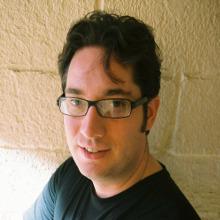Why Is Fusion Energy Promising?
(Inside Science) -- Dennis Whyte of Massachusetts Institute of Technology explains the benefits of fusion energy.
“So why is this promising? It’s because the fuel is essentially -- it’s so abundant as to make it inexhaustible really for mankind. It is a process which is inherently safe because it relies on everything being extremely hot. So even though that makes it difficult to happen on earth, what it means is that if any intrusion of the terrestrial world into the fusion environment stops it. So, there is no possibility of losing control of it in that sense.
“It doesn’t have long-lived radioactive waste. And it’s a power source that in the end you would believe would be deployable in a wide variety of ways. Because of all those features it doesn’t have any geographical limitations. And then finally it is also highly resistant if not proliferation-free, which is also another -- so in many ways it’s a process that uses this -- it’s different than fission, which most people are familiar with, which is what powers our present nuclear fleet.
“Its physics is fundamentally different, but it’s a nuclear source. So, it has those features which we like about nuclear energy. Namely it has very high‑powered density, namely meaning you can make a lot of power in a small object. This makes it very attractive for producing, for instance, centralized and distributed electricity. So, this is why we pursue it. In many ways if you can make this economically competitive against other ways that we produce electricity, it’s really in some sense the ultimate answer actually to our energy needs, because it’s carbon-free, it’s deployable into our present energy sector and it’s inexhaustible. So, it’s really got those -- it’s difficult to make it happen, but it’s so attractive. This is why we keep working at it.”

